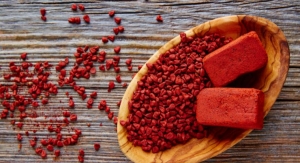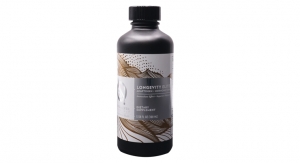Sean Moloughney, Editor06.02.14
Once dominated by products promising a boost in the bedroom, and stunted in part by incidents of adulteration, the market for men’s health supplements and fortified foods/beverages is maturing to target mainstream platforms with clinically validated formulations.
“Primary health concerns for men revolve around maintaining the ability to continue with normal activities as they age, mental sharpness and cardiovascular disease,” said Todd Sitkowski, senior marketing manager, DSM Nutritional Products, Parsippany, NJ, who cited a 2013 U.S. trend report from HealthFocus International. “Secondary concerns involve eye health and cancer.”
In terms of addressing general health concerns, men more frequently use dietary supplements on a regular basis (56%) compared to women (52%), he added.
Men over 40 worry about getting older and actively seek ways to slow the aging process, noted Paul Dijkstra, CEO, InterHealth Nutraceuticals, Benecia, CA. “Their eyesight is fading, their energy levels are low and recovery from a workout is getting harder and harder. Once men start to notice a decline in everyday function, they usually start looking for help—asking their doctor, friends and family for advice. Often, dietary supplements are recommended.”
Health concerns for men generally vary by age group, according to Kathy Lund, vice president of marketing and new business development, AIDP, City of Industry, CA. “Younger men can be interested in adding bulk or muscle strength. Middle age men may look to improve focus and productivity, while older men look for energy, ways to improve testosterone levels and how to deal with aging joints and muscles.”
With people living longer today, addressing health ailments associated with aging has become a primary consideration, she added. For example, brain health issues may include forgetfulness and memory loss as well as everyday cognitive clarity, stress management and sleep.
According to Dr. Jennifer Gu, vice president of R&D at AIDP, many cognitive health products on the market merely stimulate dormant brain synapses. AIDP’s Magtein magnesium ingredient works by keeping brain cells healthy without over-activating them. “When brain cells are healthy and well rested, they will respond to signals with clarity and robustness,” she said. “Research has demonstrated Magtein’s ability to increase brain synapse density, providing a long-term, healthier approach to cognitive health.”
Energy & Sports Performance
In their prime, men are often measured based on how energetically they approach their daily life, including work, school, physical fitness, etc., said Michael Crabtree, technical director, Bioenergy Life Science, Minneapolis, MN. “Juggling all of these tasks requires a great deal of physical energy and mental acuity. For today’s men, energy is the most precious and fundamental element.”
In order to increase energy, men must control what Mr. Crabtree called “the ultimate energy molecule in the body: ATP.” ATP is like the battery of individual cells, he said. “Without it, the cell dies. If enough cells die then we die, just as your cellphone dies when the battery goes dead. But for most of us, running low on ATP simply means we’re too exhausted to function.”
Successful products utilize ATP efficiently and make the best use of available energy, he added. “The tension that most men feel today stems from their desire to compress many tasks into few. That way of thinking also drives their dietary supplement decisions. Supplementation with Ribose is an efficient way to bolster energy levels. Men who are multi-taskers are more likely to choose energy products that also provide additional benefits/functions, such as hygiene, satiety, enhanced cognition, pre- and post-exercise supplementation, pain relief, improved sleep. Such products are high value.”
More consumers today are opting for holistic approaches to health, which is helping to fuel new product formulations, Mr. Crabtree added. Organic/natural, plant-based, whole food-based products are gaining significant traction. “We’re moving away from chemical solutions to our everyday health issues. This is an exciting time, especially for products that add value by making more than one functional claim.”
Ultimately, men look for products that can offer a recognizable effect, according to AIDP’s Ms. Lund. “Men may be looking for a more immediate response from supplements, such as more bulk/muscles from protein or an increase in focus or improved energy. They seem more engaged in products that offer a ‘feelable’ effect vs. those that are intellectually ‘good for us.’”
While the sport sector has long supported the use of whey and soy, the future of protein lies in formulations that appeal to consumers looking for non-dairy, non-GMO and vegetarian proteins, she added.
“Protein has become a priority for male health seekers and aging men. Medical science supports protein consumption for all life stages—youths, athletes and active adults, obese and overweight individuals, as well as the aging and elderly. The market potential lies in meeting the nutritional and health needs of all of these sectors,” Ms. Lund said.
AIDP’s Gabiotein sprouted brown rice protein is available in organic and non-organic forms, she added. It also comes in beverage grade and bulk/food grade. Advantein (rice/pea blend) also provides a complete protein without sacrificing on taste.
With more men looking to maintain their active lifestyles later in life, InterHealth’s Mr. Dijkstra said his company’s UC-II joint health ingredient can help support knees after exercising. “Men are exercising well into their 50s, 60s and 70s and they want to ensure that they maintain their knee joint health well into their later years. Joint support formulas can help keep men active.”
Men want to know the products they buy are going to make a difference, he added. “Positive research on ingredients can only help to increase trial of a supplement.”
Testosterone
Arguably the most significant trend in men’s health since Viagra hit the market, testosterone therapy has emerged as a prominent area of interest for aging men. In fact, annual prescriptions for testosterone increased more than five-fold from 2001 to 2011, reaching 5.3 million prescriptions; the market was worth an estimated $1.6 billion in 2011.
In addition to improving sexual function and bone mineral density, and increasing free-fat mass and strength, treatment with testosterone has been shown to improve lipid profiles and insulin resistance.
However, a study published in the Journal of the American Medical Association (JAMA) in November 2013, titled “Association of Testosterone Therapy With Mortality, Myocardial Infarction, and Stroke in Men With Low Testosterone Levels,” spurred some controversy after results suggested testosterone therapy may increase the risk of cardiovascular events like heart attack.
This retrospective study sought to evaluate the effects of testosterone therapy on cardiovascular outcomes and mortality.
Researchers evaluated the association between the use of testosterone therapy and all-cause mortality, myocardial infarction (MI) and stroke among a cohort of men in the Veterans Affairs healthcare system who underwent coronary angiography between 2005 and 2011 and had low serum testosterone levels. Researchers concluded the use of testosterone therapy was associated with increased risk of adverse outcomes.
According to a review of the study by scientific and medical staff affiliated with Life Extension, Fort Lauderdale, FL, there were several significant shortcomings in the study’s design and methodology, and the results conflict with an existing body of research.
In studies designed to assess the impact of testosterone replacement therapy, one of the most important considerations is to measure subjects’ blood levels of testosterone regularly throughout the study period. This allows the physicians and researchers conducting the study to ensure subjects are taking their testosterone as directed and their blood levels are rising as expected.
In the JAMA study, only 60% of subjects receiving testosterone had a follow-up blood test to assess their testosterone levels. Among them, average testosterone levels rose from a very low level of 175.5 ng/dL at baseline to a still far-from-optimal level of 332.2 ng/dL during testosterone therapy.
Raising testosterone levels from a very low 175.5 ng/dL to a still low 332.2 ng/dL is unlikely to deliver robust health benefits, according to Life Extension. In fact, research has shown that restoring testosterone levels to at least 500 ng/dL is associated with pronounced health benefits, whereas benefits may be less evident at lower levels.
“Over the years, several studies have shown that testosterone replacement therapy to appropriate levels in aging men with low testosterone levels at baseline improves several markers of male vitality, such as bone density, sexual desire, psychological health and cardiovascular benefit,” said Steven Joyal, MD, chief medical officer with Life Extension.
For example, in a study published in the Journal of the American College of Cardiology in October 2011, researchers identified 2,416 men (aged 69–81 years) who were not on any kind of testosterone-affecting treatment. These men were subjected to a battery of blood tests that included total testosterone and estradiol. Researchers observed that men with increasing levels of testosterone had a decreased prevalence of diabetes, hypertension and body fat mass. Compared to men with the highest testosterone levels, those with low testosterone were twice as likely to have a history of cardiovascular disease. Specifically, men in the highest quartile of total testosterone (above 550 ng/dL) had a 30% lower risk of cardiovascular events. Any level of total testosterone below 550 ng/dL resulted in significantly increased risk.
“Additional data suggest that low testosterone is linked with an increased risk of type 2 diabetes and abdominal obesity in aging men,” Dr. Joyal added.
According to Life Extension, the JAMA study also failed to account for the impact of estrogen. One of the perils facing aging men is the conversion of their testosterone into estrogen by aromatase (an enzyme that converts testosterone and other androgens into estrogen, primarily estradiol). Although some conversion of testosterone to estradiol is essential for health, too much can have serious consequences for men.
In a 2009 study published in JAMA focusing on circulating estradiol and mortality in men with systolic chronic heart failure, males with heart failure and high levels of estradiol had an increased risk of death compared to men whose levels of estradiol were in a balanced, middle range of 21.8–30.11 pg/mL. Moreover, excess estrogen promotes abnormal clot formation, and high levels may be associated with an increased risk of stroke.
Life Extension also noted that in the retrospective JAMA study that associated testosterone therapy with cardiovascular risks, there was no report of the subjects’ estradiol levels. If estradiol was not monitored during testosterone administration, this oversight means the men receiving testosterone could have experienced a concurrent rise in estradiol levels. This reaction may have compromised their cardiovascular health and could partially account for the increased risk observed in the testosterone-treated group.
Based upon an analysis of this study and the existing research, Life Extension said it continues to recommend that aging men restore testosterone levels to youthful ranges for optimal health. “The goal of testosterone restoration in most cases is to restore youthful blood levels of the hormonel,” said Luke Huber, ND, vice president of product innovation and scientific development for Life Extension. “Typically, Life Extension suggests men target a blood level of testosterone between 700-900 ng/dL for optimal health.”
According to additional research published recently in the journal Proceedings of the National Academy of Sciences of the USA, men’s susceptibility to serious health conditions may be influenced by low exposure to testosterone in the womb.
Understanding why some men have less of the hormone than others is important because testosterone is crucial for life-long health, researchers noted. Low levels of the hormone have been linked to obesity, diabetes and heart disease.
According to the researchers, cells responsible for producing testosterone in adults—known as Leydig cells—are derived from a specific population of stem cells found in the testes. The team found evidence of these stem cells in the developing testes of babies, rats, mice and marmosets in the womb. Leydig cells do not develop until puberty but the team showed their function is impaired if their stem cell forefathers are exposed to reduced levels of testosterone in the womb.
The study claims to be the first to provide evidence of how events in the womb could influence male health later in life. Research was led by scientists from the Medical Research Council (MRC) Centre for Reproductive Health at the University of Edinburgh.
“There is increasing evidence that a mother’s diet, lifestyle and exposure to drugs and chemicals can have a significant impact on testosterone levels in the womb,” said Professor Richard Sharpe. “We need a better grasp of these factors so that we can give reliable advice to pregnant women to protect the health of her unborn child.”
AIDP’s Ms. Lund noted that testosterone peaks during adolescence and early adulthood, but levels gradually decline about 1% per year after age 30. “Testosterone plays a key role in the development of male reproductive tissues as well as promoting secondary characteristics such as increased muscle, bone mass and the growth of body hair. In addition, testosterone is essential for health and well-being as well as the prevention of osteoporosis.”
InterHealth’s Mr. Dijkstra noted increased interest in testosterone-boosting supplements. “Ingredients such as ZMA (a formula containing bioavailable, patented zinc mono-L-methionine sulfate (L-OptiZinc), zinc aspartate, magnesium aspartate and vitamin B6) may help support healthy testosterone levels and address the concerns of aging men looking for anabolic support.”
Still, some researchers have called for more thorough clinical evaluation of testosterone therapy. According to a comment in The Lancet Diabetes & Endocrinology written by Professor Stephanie Page, of the University of Washington and Harborview Medical Center, Seattle, physicians still do not have sufficient information to understand the risks associated with the prescription of testosterone in older men.
“In an era when millions of men are using testosterone every day, support is urgently needed from both the public and medical communities to fund an appropriate clinical study to assess the risks and benefits of testosterone treatment in older men. There is a danger that funding and regulatory agencies will over-interpret the evidence from existing and ongoing observational studies, and conclude that larger and longer clinical trials are unnecessary and unwarranted. This conclusion would do men’s health a disservice.”
“Testosterone is a billion dollar industry, probably fuelled partly by direct to consumer advertising and some degree of overprescription,” she added. “Physicians need to discuss with their patients that we simply do not fully understand the risks associated with testosterone use in older men, and use conservative treatment guidelines—such as those provided by the Endocrine Society—to guide therapeutic decisions.”
Prostate Health
Low testosterone levels may also indicate disease progression for men with low-risk prostate cancer, according to a study published in BJU International. The findings may help physicians identify patients with low-risk prostate cancer who should receive aggressive anti-cancer treatment.
Men with prostate cancer that is not life threatening, and is only slowly progressing, can often forego treatment and instead undergo active surveillance. This involves close monitoring to ensure the disease does not become serious and jeopardize their health. Unfortunately, doctors currently have no reliable way of predicting which men will develop evidence of worsening or more aggressive disease during active surveillance.
Ignacio San Francisco, MD, of the Pontificia Universidad Católica de Chile, and his colleagues looked to see if testosterone levels might provide any indication. After following 154 men with low-risk prostate cancer for 38 months, the investigators found that low levels of free testosterone were significantly linked with an increased risk of developing more aggressive disease. They found no significant association with total testosterone concentrations, although there was a general trend toward increased risk with lower levels. Free testosterone comprises 1-2% of total testosterone and is considered a useful surrogate for the biologically active portion of circulating testosterone.
“These results suggest low levels of testosterone are associated with more aggressive prostate cancer,” said Dr. San Francisco. “This contradicts long-held beliefs that high testosterone is risky for prostate cancer, and low testosterone is protective. In borderline cases, the presence of low values of free testosterone may help determine whether it is more prudent to initiate treatment rather than continue observation.”
Aside from non-melanoma skin cancer, prostate cancer is the most common cancer among men in the U.S., according to the Centers for Disease Control and Prevention.
Following an extensive scientific review, a team of health experts in the U.K. recently developed a polyphenol-rich whole food supplement they named Pomi-T. They combined foods from different categories (fruit, vegetable, spice and leaf) in order to provide a range of polyphenols, each with unique properties, while at the same time avoiding over-consumption of one particular type.
Pomi-T consists of broccoli (Brassica oleracea), florets and stacks – 150 mg per capsule; turmeric (Burcuma longa) root – 150 mg per capsule; pomegranate (Punica granatum L) seed and whole fruit – 150 mg per capsule; and green tea (Camellia sinesis) leaf 5:1 – 30 mg equivalent to 150 mg per capsule.
Published in Prostate Cancer and Prostatic Diseases in March 2014, results from the U.K. National Cancer Research Network’s randomized, double-blind placebo-controlled trial clinical indicated that Pomi-T slowed the spread of prostate cancer.
The study evaluated 203 men aged 53-89 (average 74 years) with histologically confirmed prostate cancer; 59% were being managed with primary active surveillance (AS) or 41% with watchful waiting (WW) with a progressive PSA relapse following previous radical interventions. Subjects were randomized to receive Pomi-T twice daily or placebo for 6 months.
Results showed the median percentage PSA increased at a significantly slower rate (14.7%) in the Pomi-T group compared to men taking placebo (78.5%). At trial completion, the number of men with a stable PSA or a lower PSA was 61 (46%) in the Pomi-T group, compared to 9 (14%) in the placebo group.
The difference in percentage rise in PSA between these groups from the start to end of the study was large (63.8%); and as the patient characteristics were well-balanced and the trial had sufficient numbers to ensure adequate statistical power, the results of this study offer clinically meaningful guidance for men contemplating nutritional supplements after prostate cancer. Future trials will look at continuing the intervention for a longer period and include men with different stage of disease.
Lead author Dr. Robert Thomas, a consultant oncologist at Addenbrooke’s and Bedford Hospitals, a visiting professor at Cranfield University and a clinical teacher at Cambridge University, noted an anecdotal trend that patients in the Pomi-T group said their joints felt better. “With 55% of cancer patients left with arthralgia, we believe there’s some promise there.”
While less serious than prostate cancer, prostate gland enlargement, also called benign prostatic hyperplasia (BPH) is a common condition as men get older.
Avignon, France-based Naturex recently launched a natural cranberry ingredient for use in supplements and functional foods that is designed to address this uncomfortable prostate condition.
Flowens is a full spectrum cranberry powder engineered to relieve the lower urinary tract symptoms typically associated with BPH. It offers an effective and safe alternative to existing pharmaceutical remedies. BPH can cause an overactive bladder, leading to increased frequency of urination, or an underactive bladder, resulting in hesitancy, intermittency, weak stream and an inability to empty the bladder fully.
Research suggests 26% of men in their 40s display lower urinary tract symptoms that are moderate to severe, with this figure rising to 33% for men in their 60s, 41% for men in their 70s and 50% for men in their 80s. In a recent gold-standard clinical trial, patients with lower urinary tract symptoms who took Flowens experienced strong improvements in the key prostrate health marker—the International Prostrate Symptom Score (IPSS)—compared to placebo.
Improvements in the IPSS were more marked as the intake was increased, with a 250 mg daily dose of Flowens providing a 25% improvement and a 500 mg daily dose offering a 44% improvement.
“There are many pharmaceutical options available to improve lower urinary tract symptoms,” said Dan Souza, senior director of sales and marketing, DBS Division of Naturex. “However, many come with unwanted sexual side effects such as decreased libido and erectile dysfunction. Flowens delivers statistically significant and clinically relevant improvements with no known side effects.”
Ultimately, men want results, Mr. Souza added. “They do not go to their local nutritional supplement store to purchase a botanical. They go to purchase a health benefit. That said, well-designed clinical studies are critical to show that daily consumption will lead to improved health and improved quality of life.”
“Primary health concerns for men revolve around maintaining the ability to continue with normal activities as they age, mental sharpness and cardiovascular disease,” said Todd Sitkowski, senior marketing manager, DSM Nutritional Products, Parsippany, NJ, who cited a 2013 U.S. trend report from HealthFocus International. “Secondary concerns involve eye health and cancer.”
In terms of addressing general health concerns, men more frequently use dietary supplements on a regular basis (56%) compared to women (52%), he added.
Men over 40 worry about getting older and actively seek ways to slow the aging process, noted Paul Dijkstra, CEO, InterHealth Nutraceuticals, Benecia, CA. “Their eyesight is fading, their energy levels are low and recovery from a workout is getting harder and harder. Once men start to notice a decline in everyday function, they usually start looking for help—asking their doctor, friends and family for advice. Often, dietary supplements are recommended.”
Health concerns for men generally vary by age group, according to Kathy Lund, vice president of marketing and new business development, AIDP, City of Industry, CA. “Younger men can be interested in adding bulk or muscle strength. Middle age men may look to improve focus and productivity, while older men look for energy, ways to improve testosterone levels and how to deal with aging joints and muscles.”
With people living longer today, addressing health ailments associated with aging has become a primary consideration, she added. For example, brain health issues may include forgetfulness and memory loss as well as everyday cognitive clarity, stress management and sleep.
According to Dr. Jennifer Gu, vice president of R&D at AIDP, many cognitive health products on the market merely stimulate dormant brain synapses. AIDP’s Magtein magnesium ingredient works by keeping brain cells healthy without over-activating them. “When brain cells are healthy and well rested, they will respond to signals with clarity and robustness,” she said. “Research has demonstrated Magtein’s ability to increase brain synapse density, providing a long-term, healthier approach to cognitive health.”
Energy & Sports Performance
In their prime, men are often measured based on how energetically they approach their daily life, including work, school, physical fitness, etc., said Michael Crabtree, technical director, Bioenergy Life Science, Minneapolis, MN. “Juggling all of these tasks requires a great deal of physical energy and mental acuity. For today’s men, energy is the most precious and fundamental element.”
In order to increase energy, men must control what Mr. Crabtree called “the ultimate energy molecule in the body: ATP.” ATP is like the battery of individual cells, he said. “Without it, the cell dies. If enough cells die then we die, just as your cellphone dies when the battery goes dead. But for most of us, running low on ATP simply means we’re too exhausted to function.”
Successful products utilize ATP efficiently and make the best use of available energy, he added. “The tension that most men feel today stems from their desire to compress many tasks into few. That way of thinking also drives their dietary supplement decisions. Supplementation with Ribose is an efficient way to bolster energy levels. Men who are multi-taskers are more likely to choose energy products that also provide additional benefits/functions, such as hygiene, satiety, enhanced cognition, pre- and post-exercise supplementation, pain relief, improved sleep. Such products are high value.”
More consumers today are opting for holistic approaches to health, which is helping to fuel new product formulations, Mr. Crabtree added. Organic/natural, plant-based, whole food-based products are gaining significant traction. “We’re moving away from chemical solutions to our everyday health issues. This is an exciting time, especially for products that add value by making more than one functional claim.”
Ultimately, men look for products that can offer a recognizable effect, according to AIDP’s Ms. Lund. “Men may be looking for a more immediate response from supplements, such as more bulk/muscles from protein or an increase in focus or improved energy. They seem more engaged in products that offer a ‘feelable’ effect vs. those that are intellectually ‘good for us.’”
While the sport sector has long supported the use of whey and soy, the future of protein lies in formulations that appeal to consumers looking for non-dairy, non-GMO and vegetarian proteins, she added.
“Protein has become a priority for male health seekers and aging men. Medical science supports protein consumption for all life stages—youths, athletes and active adults, obese and overweight individuals, as well as the aging and elderly. The market potential lies in meeting the nutritional and health needs of all of these sectors,” Ms. Lund said.
AIDP’s Gabiotein sprouted brown rice protein is available in organic and non-organic forms, she added. It also comes in beverage grade and bulk/food grade. Advantein (rice/pea blend) also provides a complete protein without sacrificing on taste.
With more men looking to maintain their active lifestyles later in life, InterHealth’s Mr. Dijkstra said his company’s UC-II joint health ingredient can help support knees after exercising. “Men are exercising well into their 50s, 60s and 70s and they want to ensure that they maintain their knee joint health well into their later years. Joint support formulas can help keep men active.”
Men want to know the products they buy are going to make a difference, he added. “Positive research on ingredients can only help to increase trial of a supplement.”
Testosterone
Arguably the most significant trend in men’s health since Viagra hit the market, testosterone therapy has emerged as a prominent area of interest for aging men. In fact, annual prescriptions for testosterone increased more than five-fold from 2001 to 2011, reaching 5.3 million prescriptions; the market was worth an estimated $1.6 billion in 2011.
In addition to improving sexual function and bone mineral density, and increasing free-fat mass and strength, treatment with testosterone has been shown to improve lipid profiles and insulin resistance.
However, a study published in the Journal of the American Medical Association (JAMA) in November 2013, titled “Association of Testosterone Therapy With Mortality, Myocardial Infarction, and Stroke in Men With Low Testosterone Levels,” spurred some controversy after results suggested testosterone therapy may increase the risk of cardiovascular events like heart attack.
This retrospective study sought to evaluate the effects of testosterone therapy on cardiovascular outcomes and mortality.
Researchers evaluated the association between the use of testosterone therapy and all-cause mortality, myocardial infarction (MI) and stroke among a cohort of men in the Veterans Affairs healthcare system who underwent coronary angiography between 2005 and 2011 and had low serum testosterone levels. Researchers concluded the use of testosterone therapy was associated with increased risk of adverse outcomes.
According to a review of the study by scientific and medical staff affiliated with Life Extension, Fort Lauderdale, FL, there were several significant shortcomings in the study’s design and methodology, and the results conflict with an existing body of research.
In studies designed to assess the impact of testosterone replacement therapy, one of the most important considerations is to measure subjects’ blood levels of testosterone regularly throughout the study period. This allows the physicians and researchers conducting the study to ensure subjects are taking their testosterone as directed and their blood levels are rising as expected.
In the JAMA study, only 60% of subjects receiving testosterone had a follow-up blood test to assess their testosterone levels. Among them, average testosterone levels rose from a very low level of 175.5 ng/dL at baseline to a still far-from-optimal level of 332.2 ng/dL during testosterone therapy.
Raising testosterone levels from a very low 175.5 ng/dL to a still low 332.2 ng/dL is unlikely to deliver robust health benefits, according to Life Extension. In fact, research has shown that restoring testosterone levels to at least 500 ng/dL is associated with pronounced health benefits, whereas benefits may be less evident at lower levels.
“Over the years, several studies have shown that testosterone replacement therapy to appropriate levels in aging men with low testosterone levels at baseline improves several markers of male vitality, such as bone density, sexual desire, psychological health and cardiovascular benefit,” said Steven Joyal, MD, chief medical officer with Life Extension.
For example, in a study published in the Journal of the American College of Cardiology in October 2011, researchers identified 2,416 men (aged 69–81 years) who were not on any kind of testosterone-affecting treatment. These men were subjected to a battery of blood tests that included total testosterone and estradiol. Researchers observed that men with increasing levels of testosterone had a decreased prevalence of diabetes, hypertension and body fat mass. Compared to men with the highest testosterone levels, those with low testosterone were twice as likely to have a history of cardiovascular disease. Specifically, men in the highest quartile of total testosterone (above 550 ng/dL) had a 30% lower risk of cardiovascular events. Any level of total testosterone below 550 ng/dL resulted in significantly increased risk.
“Additional data suggest that low testosterone is linked with an increased risk of type 2 diabetes and abdominal obesity in aging men,” Dr. Joyal added.
According to Life Extension, the JAMA study also failed to account for the impact of estrogen. One of the perils facing aging men is the conversion of their testosterone into estrogen by aromatase (an enzyme that converts testosterone and other androgens into estrogen, primarily estradiol). Although some conversion of testosterone to estradiol is essential for health, too much can have serious consequences for men.
In a 2009 study published in JAMA focusing on circulating estradiol and mortality in men with systolic chronic heart failure, males with heart failure and high levels of estradiol had an increased risk of death compared to men whose levels of estradiol were in a balanced, middle range of 21.8–30.11 pg/mL. Moreover, excess estrogen promotes abnormal clot formation, and high levels may be associated with an increased risk of stroke.
Life Extension also noted that in the retrospective JAMA study that associated testosterone therapy with cardiovascular risks, there was no report of the subjects’ estradiol levels. If estradiol was not monitored during testosterone administration, this oversight means the men receiving testosterone could have experienced a concurrent rise in estradiol levels. This reaction may have compromised their cardiovascular health and could partially account for the increased risk observed in the testosterone-treated group.
Based upon an analysis of this study and the existing research, Life Extension said it continues to recommend that aging men restore testosterone levels to youthful ranges for optimal health. “The goal of testosterone restoration in most cases is to restore youthful blood levels of the hormonel,” said Luke Huber, ND, vice president of product innovation and scientific development for Life Extension. “Typically, Life Extension suggests men target a blood level of testosterone between 700-900 ng/dL for optimal health.”
According to additional research published recently in the journal Proceedings of the National Academy of Sciences of the USA, men’s susceptibility to serious health conditions may be influenced by low exposure to testosterone in the womb.
Understanding why some men have less of the hormone than others is important because testosterone is crucial for life-long health, researchers noted. Low levels of the hormone have been linked to obesity, diabetes and heart disease.
According to the researchers, cells responsible for producing testosterone in adults—known as Leydig cells—are derived from a specific population of stem cells found in the testes. The team found evidence of these stem cells in the developing testes of babies, rats, mice and marmosets in the womb. Leydig cells do not develop until puberty but the team showed their function is impaired if their stem cell forefathers are exposed to reduced levels of testosterone in the womb.
The study claims to be the first to provide evidence of how events in the womb could influence male health later in life. Research was led by scientists from the Medical Research Council (MRC) Centre for Reproductive Health at the University of Edinburgh.
“There is increasing evidence that a mother’s diet, lifestyle and exposure to drugs and chemicals can have a significant impact on testosterone levels in the womb,” said Professor Richard Sharpe. “We need a better grasp of these factors so that we can give reliable advice to pregnant women to protect the health of her unborn child.”
AIDP’s Ms. Lund noted that testosterone peaks during adolescence and early adulthood, but levels gradually decline about 1% per year after age 30. “Testosterone plays a key role in the development of male reproductive tissues as well as promoting secondary characteristics such as increased muscle, bone mass and the growth of body hair. In addition, testosterone is essential for health and well-being as well as the prevention of osteoporosis.”
InterHealth’s Mr. Dijkstra noted increased interest in testosterone-boosting supplements. “Ingredients such as ZMA (a formula containing bioavailable, patented zinc mono-L-methionine sulfate (L-OptiZinc), zinc aspartate, magnesium aspartate and vitamin B6) may help support healthy testosterone levels and address the concerns of aging men looking for anabolic support.”
Still, some researchers have called for more thorough clinical evaluation of testosterone therapy. According to a comment in The Lancet Diabetes & Endocrinology written by Professor Stephanie Page, of the University of Washington and Harborview Medical Center, Seattle, physicians still do not have sufficient information to understand the risks associated with the prescription of testosterone in older men.
“In an era when millions of men are using testosterone every day, support is urgently needed from both the public and medical communities to fund an appropriate clinical study to assess the risks and benefits of testosterone treatment in older men. There is a danger that funding and regulatory agencies will over-interpret the evidence from existing and ongoing observational studies, and conclude that larger and longer clinical trials are unnecessary and unwarranted. This conclusion would do men’s health a disservice.”
“Testosterone is a billion dollar industry, probably fuelled partly by direct to consumer advertising and some degree of overprescription,” she added. “Physicians need to discuss with their patients that we simply do not fully understand the risks associated with testosterone use in older men, and use conservative treatment guidelines—such as those provided by the Endocrine Society—to guide therapeutic decisions.”
Prostate Health
Low testosterone levels may also indicate disease progression for men with low-risk prostate cancer, according to a study published in BJU International. The findings may help physicians identify patients with low-risk prostate cancer who should receive aggressive anti-cancer treatment.
Men with prostate cancer that is not life threatening, and is only slowly progressing, can often forego treatment and instead undergo active surveillance. This involves close monitoring to ensure the disease does not become serious and jeopardize their health. Unfortunately, doctors currently have no reliable way of predicting which men will develop evidence of worsening or more aggressive disease during active surveillance.
Ignacio San Francisco, MD, of the Pontificia Universidad Católica de Chile, and his colleagues looked to see if testosterone levels might provide any indication. After following 154 men with low-risk prostate cancer for 38 months, the investigators found that low levels of free testosterone were significantly linked with an increased risk of developing more aggressive disease. They found no significant association with total testosterone concentrations, although there was a general trend toward increased risk with lower levels. Free testosterone comprises 1-2% of total testosterone and is considered a useful surrogate for the biologically active portion of circulating testosterone.
“These results suggest low levels of testosterone are associated with more aggressive prostate cancer,” said Dr. San Francisco. “This contradicts long-held beliefs that high testosterone is risky for prostate cancer, and low testosterone is protective. In borderline cases, the presence of low values of free testosterone may help determine whether it is more prudent to initiate treatment rather than continue observation.”
Aside from non-melanoma skin cancer, prostate cancer is the most common cancer among men in the U.S., according to the Centers for Disease Control and Prevention.
Following an extensive scientific review, a team of health experts in the U.K. recently developed a polyphenol-rich whole food supplement they named Pomi-T. They combined foods from different categories (fruit, vegetable, spice and leaf) in order to provide a range of polyphenols, each with unique properties, while at the same time avoiding over-consumption of one particular type.
Pomi-T consists of broccoli (Brassica oleracea), florets and stacks – 150 mg per capsule; turmeric (Burcuma longa) root – 150 mg per capsule; pomegranate (Punica granatum L) seed and whole fruit – 150 mg per capsule; and green tea (Camellia sinesis) leaf 5:1 – 30 mg equivalent to 150 mg per capsule.
Published in Prostate Cancer and Prostatic Diseases in March 2014, results from the U.K. National Cancer Research Network’s randomized, double-blind placebo-controlled trial clinical indicated that Pomi-T slowed the spread of prostate cancer.
The study evaluated 203 men aged 53-89 (average 74 years) with histologically confirmed prostate cancer; 59% were being managed with primary active surveillance (AS) or 41% with watchful waiting (WW) with a progressive PSA relapse following previous radical interventions. Subjects were randomized to receive Pomi-T twice daily or placebo for 6 months.
Results showed the median percentage PSA increased at a significantly slower rate (14.7%) in the Pomi-T group compared to men taking placebo (78.5%). At trial completion, the number of men with a stable PSA or a lower PSA was 61 (46%) in the Pomi-T group, compared to 9 (14%) in the placebo group.
The difference in percentage rise in PSA between these groups from the start to end of the study was large (63.8%); and as the patient characteristics were well-balanced and the trial had sufficient numbers to ensure adequate statistical power, the results of this study offer clinically meaningful guidance for men contemplating nutritional supplements after prostate cancer. Future trials will look at continuing the intervention for a longer period and include men with different stage of disease.
Lead author Dr. Robert Thomas, a consultant oncologist at Addenbrooke’s and Bedford Hospitals, a visiting professor at Cranfield University and a clinical teacher at Cambridge University, noted an anecdotal trend that patients in the Pomi-T group said their joints felt better. “With 55% of cancer patients left with arthralgia, we believe there’s some promise there.”
While less serious than prostate cancer, prostate gland enlargement, also called benign prostatic hyperplasia (BPH) is a common condition as men get older.
Avignon, France-based Naturex recently launched a natural cranberry ingredient for use in supplements and functional foods that is designed to address this uncomfortable prostate condition.
Flowens is a full spectrum cranberry powder engineered to relieve the lower urinary tract symptoms typically associated with BPH. It offers an effective and safe alternative to existing pharmaceutical remedies. BPH can cause an overactive bladder, leading to increased frequency of urination, or an underactive bladder, resulting in hesitancy, intermittency, weak stream and an inability to empty the bladder fully.
Research suggests 26% of men in their 40s display lower urinary tract symptoms that are moderate to severe, with this figure rising to 33% for men in their 60s, 41% for men in their 70s and 50% for men in their 80s. In a recent gold-standard clinical trial, patients with lower urinary tract symptoms who took Flowens experienced strong improvements in the key prostrate health marker—the International Prostrate Symptom Score (IPSS)—compared to placebo.
Improvements in the IPSS were more marked as the intake was increased, with a 250 mg daily dose of Flowens providing a 25% improvement and a 500 mg daily dose offering a 44% improvement.
“There are many pharmaceutical options available to improve lower urinary tract symptoms,” said Dan Souza, senior director of sales and marketing, DBS Division of Naturex. “However, many come with unwanted sexual side effects such as decreased libido and erectile dysfunction. Flowens delivers statistically significant and clinically relevant improvements with no known side effects.”
Ultimately, men want results, Mr. Souza added. “They do not go to their local nutritional supplement store to purchase a botanical. They go to purchase a health benefit. That said, well-designed clinical studies are critical to show that daily consumption will lead to improved health and improved quality of life.”




























